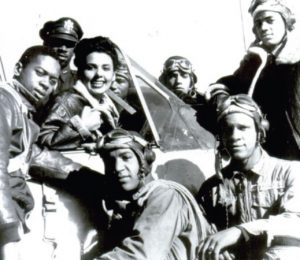Lena Horne
WORD OF THE DAY
PERSONAL CONTEXT
HISTORICAL CONTEXT
SUCCESS PRINCIPLE
CIVICS LESSON
Click below to listen to audio:
REFUSE TO TAKE THE STAGE
You have to be taught to be second class; you’re not born that way.
Lena Horne
1963 was an eventful year for celebrity entertainer Lena Horne. As she continued to headline at top night clubs and appear on TV variety shows and specials, Horne intensified her activities with the Civil Rights Movement. She was with Medgar Evers at a NAACP rally in Mississippi the weekend before he was assassinated there. She attended the March on Washington and heard Martin Luther King Jr. give his historic “I Have A Dream” speech. She met with writer James Baldwin and with President John Kennedy at the White House on November 20, 1963, two days prior to his assassination
Horne’s involvement in civil rights had begun two decades earlier, even before her live album — “Lena Horne At The Waldorf-Astoria” — became a trailblazing hit in 1957, the biggest-selling record to date by a female artist on the RCA label. Throughout World War II she entertained troops for the USO but refused to take the stage when the audience was segregated. During one of her USO performances for an integrated audience in which the German POWs were seated in front of African American soldiers, Horne walked off the stage to where the black servicemen were seated, giving them the front row view with the German troops behind her. Horne eventually stopped giving USO performances because of its segregationist policies but instead took the stage on her own terms; she financed her performances at military camps herself. She described her commitment in these words:
Nobody black or white who really believes in democracy can stand aside now; everybody’s got to stand up and be counted.
Horne refused to take the stage when the values of the sponsoring organization were different from her own. Compromise was not an option concerning fair treatment of racial groups. No matter how much you’re getting paid, how far you’ve traveled or how strongly you feel about a cause, refuse to take the stage when you’re faced with:
IMBROGLIO
When Horne was faced with an audience of foreign prisoners seated in front of her uniformed countrymen, she refused to take the regular stage, creating an impromptu stage that was consistent with values of fairness and integrity. When you’re confronted with an extremely confused, complicated, conflicted or embarrassing situation, take a step back. Refuse to move forward in any way until the predicament is rectified; unless you, like Horne, can take the initiative and come up with an immediate, creative and fair solution.
IMMISERATION
Never support policies or programs undergirding economic injustice. If making people more miserable and impoverished is the outcome, be sure to move away. Do your homework. Research the program that you might support to find out what it’s really about. Don’t rely simply on word of mouth. Get the facts!
IMPERIOUSNESS
If the leadership lacks integrity, it will trickle down through the organization. Everyone makes mistakes but the arrogant refuse to admit them and make necessary changes. Pay close attention to what’s really going on. Things are not always as they appear.
INJUSTICE
The litmus test is: is everyone better off through this activity, or are some ending up worse off because others have an unfair advantage? Safeguard your integrity. Answer this question before you get involved. Just because others are in the mud doesn’t mean you have to get down and dirty with them.
KEY POINTS
WORD OF THE DAY
Imbroglio – an extremely confused, complicated, or embarrassing situation.
PERSONAL CONTEXT
Born in Brooklyn in 1917, Horne was raised mostly by her grandparents because her father left the family when she was three and her mother performed with a Black theatre troupe that spent a lot of time on the road. In 1933 Horne joined the Cotton Club chorus line in Harlem and was featured in the Cotton Club Parade the following year, which gained her the exposure leading to many singing and acting opportunities. In 1942 Lena Horne signed a long-term contract with MGM Studios, the first African American woman to do so.
HISTORICAL CONTEXT
Horne’s work as a civil right activist was diverse: she sued restaurants and theaters for race discrimination; she assisted Eleanor Roosevelt in her anti-lynching campaign; she advocated for Japanese Americans facing discrimination during World War II; and she performed at civil rights rallies in the South during the 1960s.
SUCCESS PRINCIPLE
See Success Principle Worksheet
CIVICS LESSON
See Civics Lesson Worksheet


